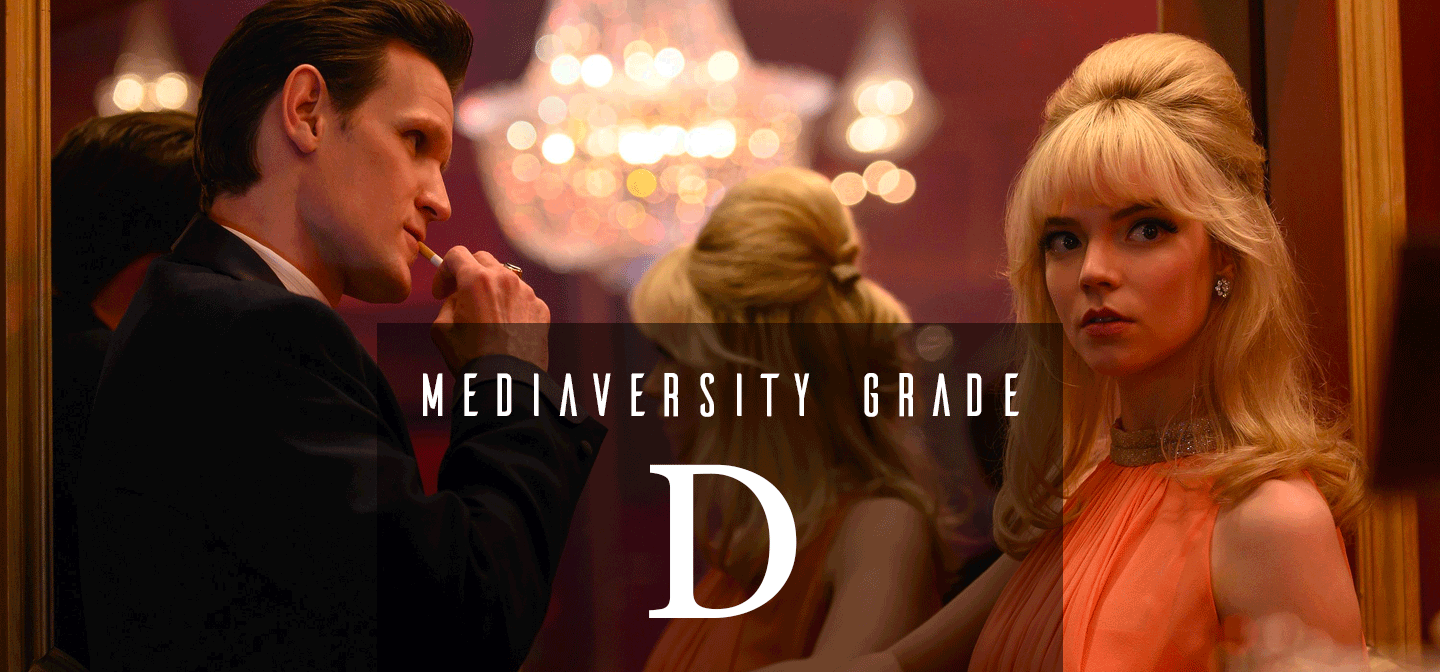Saltburn
“Saltburn toes the blurred line between a positive reclamation of the ‘evil gays’ trend and a negative stereotype.”
Title: Saltburn (2023)
Director: Emerald Fennell 👩🏼🇬🇧
Writer: Emerald Fennell 👩🏼🇬🇧
Reviewed by Li 👩🏻🇺🇸
Technical: 4/5
In Saltburn, scholarship student Oliver Quick (Barry Keoghan) enters Oxford University and finds himself unprepared for the secret world of his rich and entitled peers. One of these peers, student Felix Catton (Jacob Elordi), catches Oliver’s eye. And when Felix eventually invites the newly befriended Oliver into his opulent home of Saltburn, the two embark on a lilting, uneasy dance of teetering power dynamics.
If you’re acquainted with the work of writer-director Emerald Fennell, aspects of Saltburn will feel familiar. The sexually charged obsessions found in Killing Eve’s second season pair with the vicarious revenge fantasies of Promising Young Woman (2020), all while dark themes about lies, murder, and manipulation are put into stark relief by indie dance beats and vibrant colors. This enchanting combination creates a menacing experience that looks beautiful on the surface yet makes its viewers’ skin crawl. Visceral, sometimes gross-out moments keep people squirming in their seats, and although the film’s pacing can be uneven, with mysteries taking a bit too long to wrap up, the audible gasps and occasional “eww”s that Saltburn drew from my theater crowd would indicate a memorable time for all.
Gender: 4/5
Does it pass the Bechdel Test? YES
Saltburn is written and directed by a female filmmaker. It focuses on young men including Oliver, Felix, and Felix’s upper-class (but otherwise penniless) cousin Farleigh Start, played by Archie Madekwe. But portrayals of gender feel incredibly modern. Traditional forms of machismo are mostly absent; male characters fall a little bit in love with other men, and blurred lines separate platonic friendship, romantic attraction, and the intoxication of being near someone powerful. When “macho” bullying does appear, such as a bar scene when Farleigh pressures Oliver to buy the next round of booze for a large party while knowing perfectly well the scholarship student can’t afford it, the group’s pack mentality is quickly defrayed by Felix’s kindness. (Felix “drops” some cash and hands it over to Oliver, pretending it was the latter’s all along and allowing the less affluent student to save face.)
In addition, Fennell’s camera employs a female gaze: We get close-ups on faces that telegraph depths of emotion. Erotic moments linger on male bodies—one scene roves over Felix’s neck as he masturbates in a bathtub, and nude male butts are occasionally visible whereas women are clothed throughout, even during sex scenes. It’s a refreshing reversal from the typical male lens that swings for dramatic, physical action with a focus on female sexuality.
Race: 2.75/5
Farleigh is the only significant character of color, played by Madekwe who’s Nigerian-born British and multiracial. As Felix’s cousin, Farleigh is versed in the social norms and power games of the British elite, but still forced to bring around the “begging bowl” (as Felix puts it) to patriarch Sir James Catton (Richard E. Grant). Meanwhile, Farleigh’s presumably Black mother lives in “squalor” (Farleigh’s words) back in America. Since there are so few Black characters in the film, it feels a bit stereotypical that the only one in a substantial role is shown needing money.
In a minor role, a Black woman, Lady Daphne (Lolly Adefope), attends a dinner party. She’s non-stereotypical but only has a couple of scenes, portrayed superficially as yet another moneyed, detestable person belonging to the Cattons’ fickle world.
Bonus for LGBTQ: +0.50
The film doesn’t explicitly tackle queerness, but characters are drawn to a variety of people and genders in ways that have more to do with power than sexuality. Same-sex relationships are normalized; Farleigh and Felix’s mother, Elspeth Catton (Rosamund Pike), separately mention romantic couples, and they don’t bat an eyelash when said couples aren’t heterosexual.
That said, the “evil gays” media trend arrives in full force here, with Oliver’s manipulative ingratiation to the upper echelons recalling a classic queer villain, Matt Damon’s titular The Talented Mr. Ripley (1999). The line between what’s considered a positive reclamation of the trend, or a negative stereotype, is porous indeed. Certain aspects help skew a title towards the former: Having queer storytellers and queer actors behind the lens, or showcasing a plethora of queer characters in a diversity of roles—as seen in The White Lotus, for example—goes a long way towards positive representation.
In the case of Saltburn, ostensibly straight filmmakers and actors piece together Oliver’s fluid sexuality. On the other hand, the entire cast of characters could be construed as existing somewhere on the queer spectrum, removing the burden of “gay representation” from any one of them. In short, it’s a bit of a mixed bag. And anyway, queerness isn’t the point of the sex-charged scenes in the film: Fennell tells Pink News, “This is a world where everyone wants everyone ... this is a film entirely about desire, and that desire takes every conceivable kind of manifestation.”
Mediaversity Grade: B- 3.75/5
Saltburn devastates viewers with its thrilling and creative take on class warfare. Does Oliver covet Felix’s money and prestige, or does he hate that their upper-class nonsense exists? With these murky questions of morality put to the screen, Fennell asks us to interrogate our own collective fascination with obscene wealth: Perhaps there’s some part of Oliver’s darkness in each and every one of us.




